Breakthrough research from umbilical cord stem cells can save premature babies from brain damage
In a medical world first, it’s been found umbilical cord blood cells can “shield” the tiniest premature babies from injury — just like they did for now three-year-old Billie.
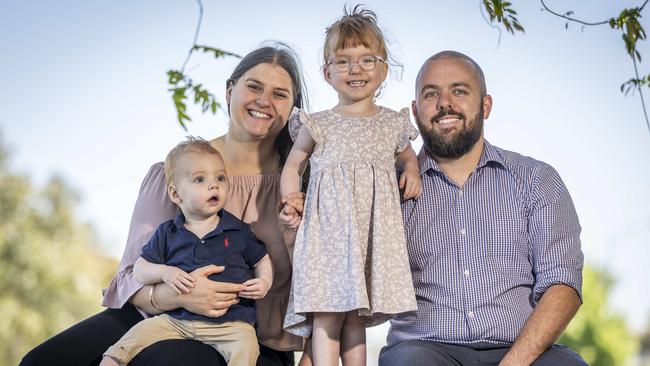
Victoria
Don't miss out on the headlines from Victoria. Followed categories will be added to My News.
They are the tiniest and most vulnerable of babies — born way too soon and much too small — but now Australian scientists may have found a way to help premature babies protect themselves from brain injuries.
In a world first, the team at Monash Children’s Hospital have successfully collected and reinfused umbilical cord blood cells in babies born before 28 weeks, known as extremely premature.
Most babies weighed less than 750g, so tiny they could fit into the palm of an adult hand.
It is the first time the cord blood of such fragile babies has successfully been collected at birth and infused back, and then shown to help naturally shield their brains from injury.
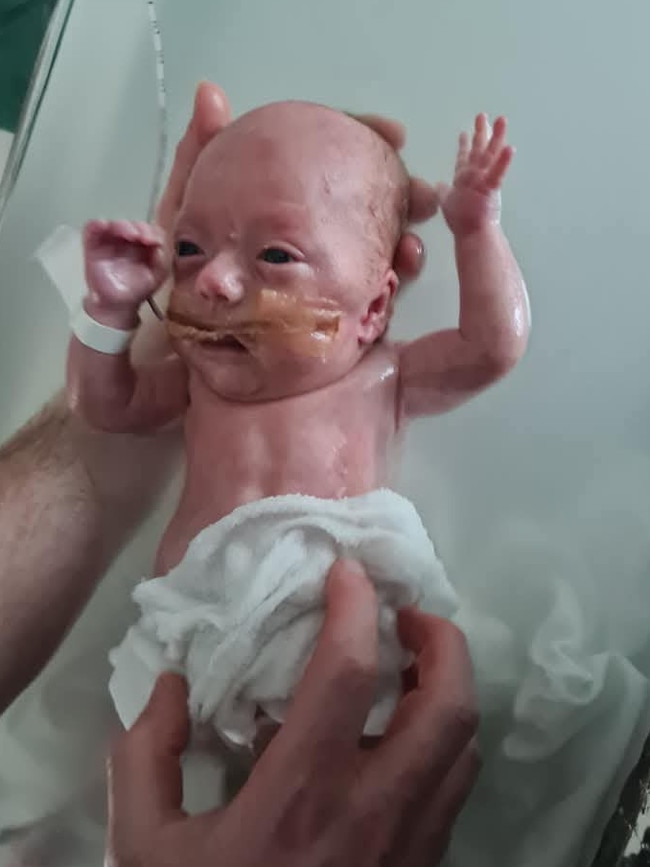
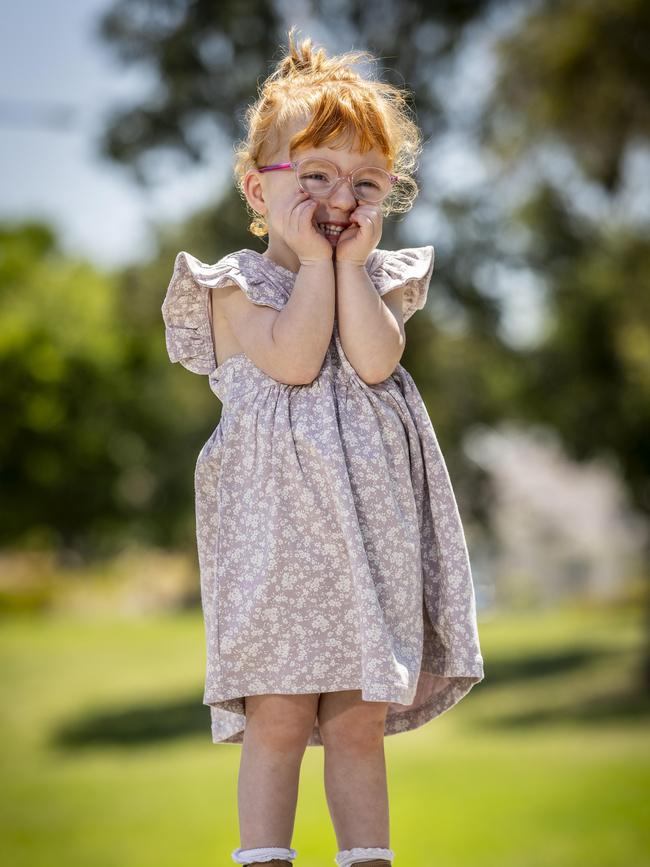
“Sometimes when babies are born so preterm they can be quite unstable around the time of birth and develop problems like bleeding in the brain,” lead author Lindsay Zhou said.
“That can affect brain development over time and increase their risk of problems like cerebral palsy.”
Neonatologist Dr Zhou said cord blood was a rich source of stem cells, which are the body’s building blocks.
“The theory of how it’s working is that the stem cells act in a way to reduce inflammation,” he said.
They’ve been studied to show that they can reduce the inflammatory reaction that’s negative and can harm the brain as it’s developing, and they also can encourage growth.
“So it’s probably those two things together that are protective for the preterm brain. So in a way the babies are helping to heal themselves.”
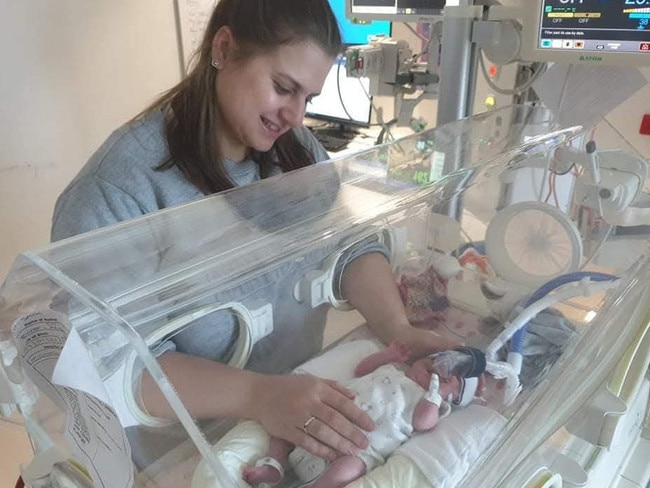
The authors found that these umbilical cord blood derived cells show “excellent potential” for their protective properties. There is now interest in their research from neonatal intensive care units worldwide.
Dr Zhou said the study of 23 premature babies born at Monash Children’s Hospital was the result of more than a decade of research by the Ritchie Centre at Monash University and Hudson Institute of Medical Research.
“The goal (of this study) was to assess if it was safe and feasible to do as we weren’t sure if we’d be able to collect enough blood from the umbilical cords of these tiny babies, let alone give it back to them as it as an IV treatment,” Dr Zhou said.
“We have shown that for a majority of babies it was feasible and also safe, so that means that we can now move on to a second phase of a study in more babies where we can see how effective it might be.”
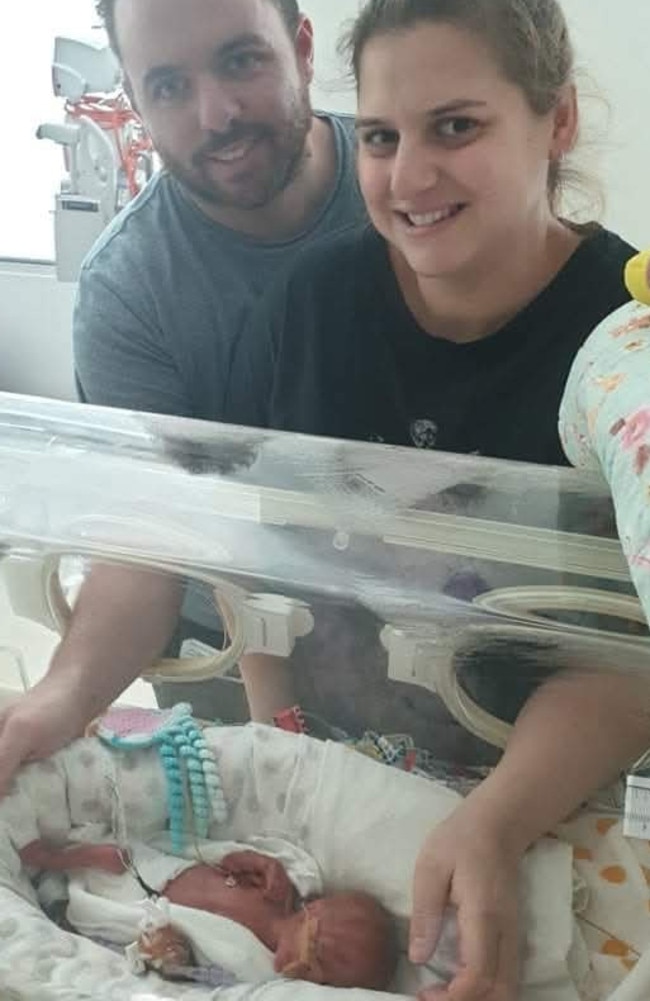
The scientists said collecting cord blood was challenging as the babies had much smaller placentas, minimal blood volumes and there were often complex deliveries.
“We showed in this study that it was possible … and when we followed up the babies at three months they were doing much better than we expected,” Dr Zhou said.
The research was published on Saturday in the Lancet journal, eBioMedicine.
“It represents an exciting development in neonatal care,” Dr Zhou said. “For the first time, we’re exploring how a baby’s own cord blood cells might be used therapeutically in extremely preterm infants, offering a potential treatment option where previously there were limited alternatives.”
The research was a collaboration of Monash Health’s Monash Children’s Hospital, Monash University and the Hudson Institute of Medical Research.
The project’s lead researcher, Atul Malhotra, said the breakthrough offered hope for parents and medical professionals dealing with the complex challenges of extremely premature birth, potentially changing the landscape of neonatal care for generations to come.
“The Cord-Safe Study represents a crucial step in exploring how we can use a baby’s own cord blood to improve outcomes,” Professor Malhotra said.
“By forming the basis for an international randomised controlled trial, this study highlights Australia’s leadership in developing innovative treatments in neonatal care.”
Billie’s story
Billie Garey wants a book about dinosaurs for Christmas. Mum Rhianna and dad Sam say dinosaurs are their bright, happy toddler’s love at the moment, although she also still loves dancing and has a trampoline on Santa’s list.
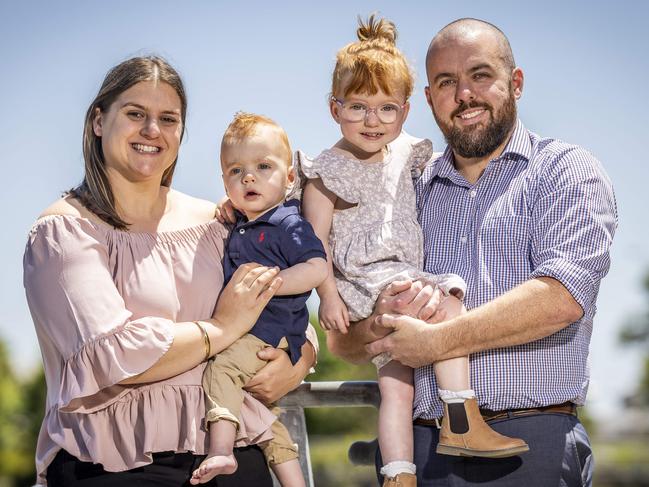
Now three, Billie and her twin sister Macie were born at 24 weeks and one day. Sadly Macie died when she was seven days old. Like many preterm babies, both Billie and Macie suffered brain bleeds. Macie’s was catastrophic.
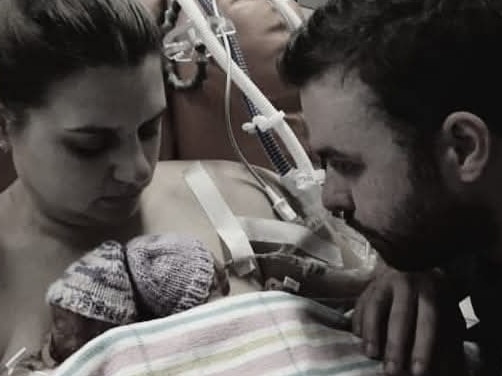
Rhianna and Sam, both 35, knew their twin pregnancy was at risk of a preterm birth when a scan at 20 weeks warned the cervix had shortened from the weight of cradling two babies.
Mrs Garey was placed on bed rest and medication, but four weeks later went into labour.
“Macie had a lot more complications due to being so premature,” Ms Garey said.
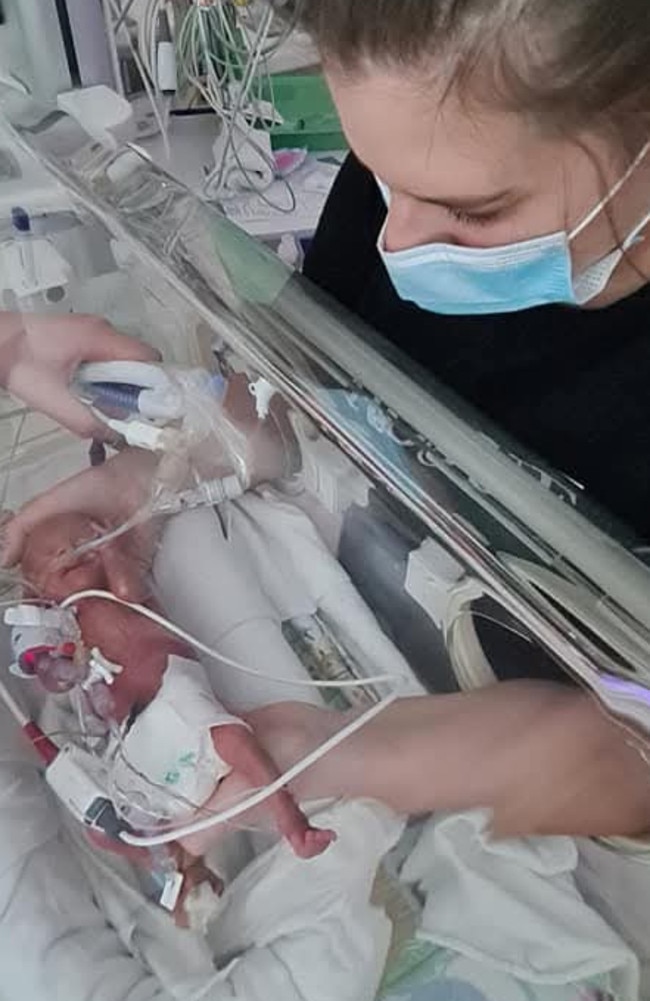
The parents were asked by researchers to join the Cord-Safe Study. This would mean collecting umbilical cord blood from both babies immediately after birth so that it could be stored and reinfused later as a possible natural shield to protect from brain injury.
“I am a nurse, I’m all for research,” Ms Garey said. “Our babies had a chance because other parents had done clinical trials in the past.”
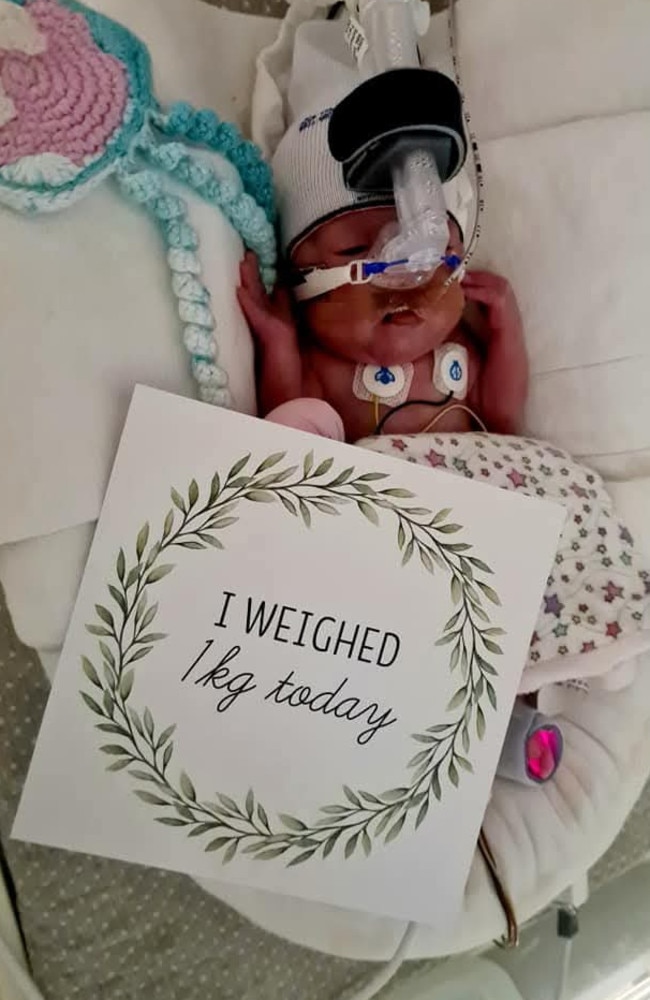
She said Billie, weighing a tiny 620g, was given her stem cells back at 10 days following a small brain bleed.
“She now has very mild cerebral palsy. It only affects her left lower limb so without the stem cells, who knows if her cerebral palsy might’ve been a bit more advanced than it is,” Ms Garey said.
Billie then spent 109 days in the hospital’s neonatal intensive care unit before going home.
Today, she is a big sister to her brother Chester, 1.
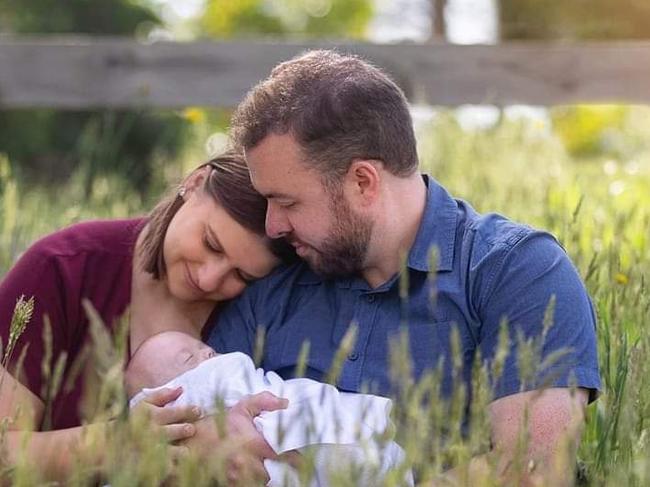
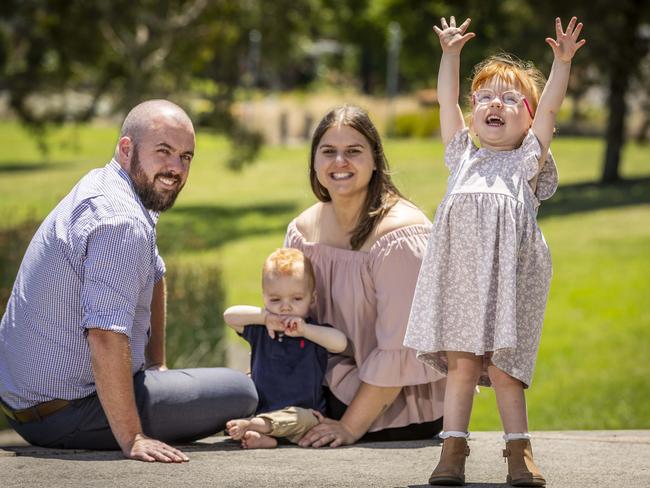
Her parents say their daughter is amazing.
“She’s a very smart cookie. We always say as a joke, it’s the stem cells that have made her smart, because she’s very, very cluey, switched on and meeting all her milestones.”
More Coverage
Originally published as Breakthrough research from umbilical cord stem cells can save premature babies from brain damage




